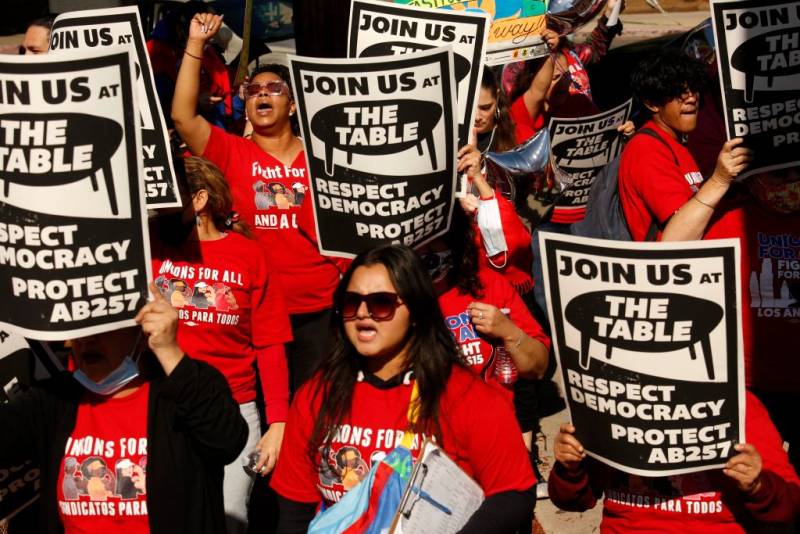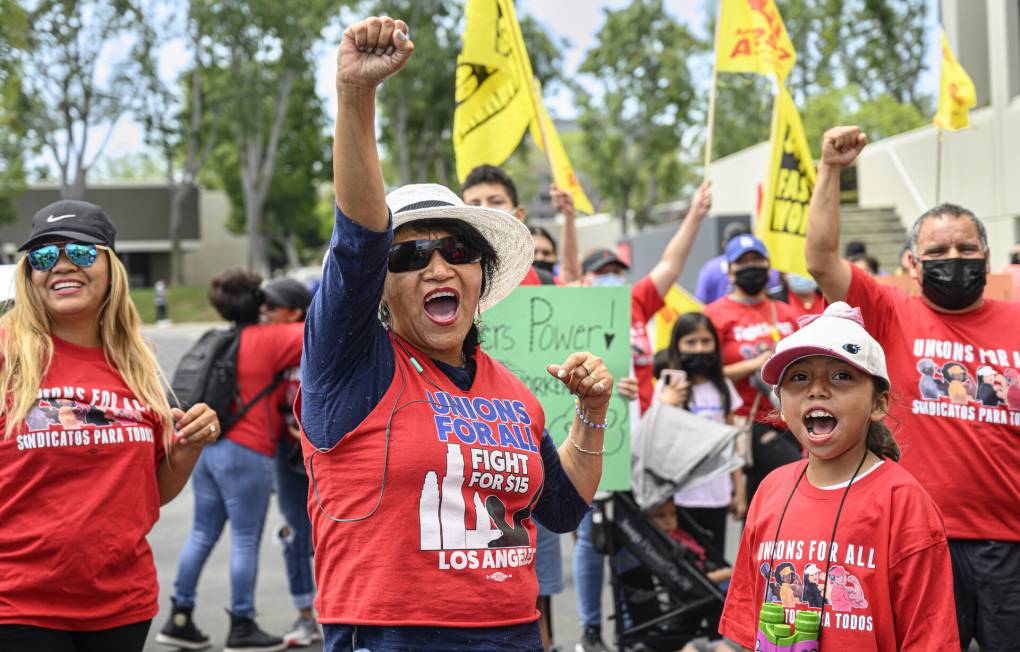Implementation could include clearing the way for appointments to the Fast Food Council. But any wage increases or other changes couldn’t take effect until at least October, meaning the law would have no immediate impact on worker pay.
The International Franchise Association and the National Restaurant Association said state law requires the state to sit tight until the status of the referendum is determined. The industry groups submitted more than 1 million signatures from voters in support of the referendum, well above the roughly 620,000 required by state law.
“California bureaucrats, at the behest of special interests, are taking an unprecedented step to violate their Constitution and the will of more than one million voters who asked for the Fast Food Council to be stopped via the referendum process,” Matt Haller, chief executive officer and president of the International Franchise Association, said in a statement.
The Service Employees International Union, which drove support for the creation of the council, blasted the lawsuit and several companies by name, including McDonald’s, Chipotle and Starbucks.
“This cowardly tactic comes right out of the corporate playbook Californians have, unfortunately, come to know too well,” said Tia Orr, executive director of SEIU California, in a statement.

